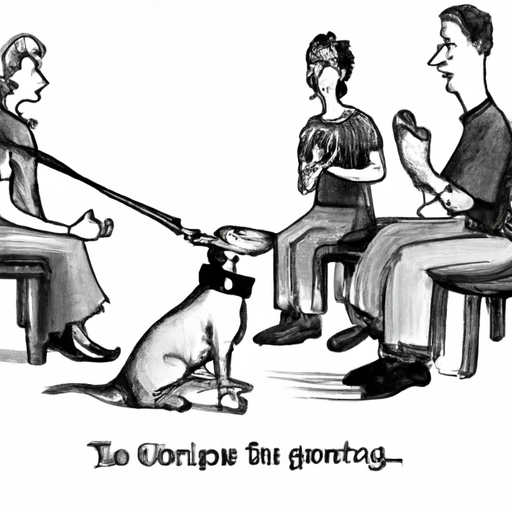Understand Why Your Dog is Barking
First, it’s important to understand why your dog is barking. Dogs bark for a variety of reasons, including fear, boredom, and alerting you to potential danger. It’s essential to pinpoint the exact cause of your dog’s barking before you can effectively address it.
- Fear: Dogs often bark at strangers out of fear. If your dog is barking at people, it may be because they are scared or anxious.
- Boredom: If your dog doesn’t have enough to do, they might resort to barking to entertain themselves.
- Alerting: Dogs are natural protectors and may bark to alert you to potential danger.
Identify Triggering Situations
Once you understand why your dog is barking, you can start to identify the situations that trigger this behavior. This could be anything from seeing a stranger walk past your house to hearing a loud noise.
- Write down the instances when your dog barks excessively.
- Note what was happening at that time.
- Repeat this exercise for a few days to identify patterns.
| Day | Triggering Situations |
|---|---|
| Monday | Stranger walking past the house |
| Tuesday | Loud noise from the construction |
| Wednesday | Postman delivering mail |
Use Positive Reinforcement
One of the most effective ways to stop your dog from barking at people is to use positive reinforcement. This means rewarding your dog when they behave the way you want them to.
- Start by introducing your dog to a calm environment with few people.
- Reward them with a treat or praise when they remain quiet.
- Gradually increase the number of people and maintain the rewarding system.
Train Your Dog with Commands
Teaching your dog a few simple commands can go a long way in controlling their barking.
- “Quiet” Command: This command helps your dog understand when they need to stop barking.
- “Stay” Command: This command can help keep your dog calm and in one place, especially when there are strangers around.
Consult a Professional
If your dog’s barking becomes uncontrollable, don’t hesitate to consult a professional dog trainer or behaviorist. They can provide expert advice and personalized training programs to help your dog overcome their fear or anxiety.
Practice Patience
Remember, changing a dog’s behavior takes time. Practice patience and consistency, and never resort to punishment, as this could make the problem worse.
Provide Plenty of Exercise
Ensuring that your dog gets plenty of physical exercise and mental stimulation can help reduce excessive barking. This could be as simple as taking your dog for a walk or playing fetch in the park.
FAQ
Q: My dog barks at every stranger. What should I do?
A: Try to identify why your dog is barking at strangers. It could be due to fear or alerting behavior. Once you understand the reason, you can use positive reinforcement or commands to control the barking.
Q: How long does it take to train a dog not to bark at people?
A: The training duration varies depending on the dog’s personality, the reason for their barking, and your consistency in training. It could take a few weeks to several months.
Q: Can I stop my dog from barking completely?
A: It’s unrealistic and unhealthy to aim for complete silence. Barking is a natural way for dogs to communicate. The goal should be to control excessive or inappropriate barking.
Q: Should I use a bark collar to control my dog’s barking?
A: Bark collars should be a last resort and used under professional supervision. They can cause fear and anxiety in dogs, which can lead to other behavioral issues.



